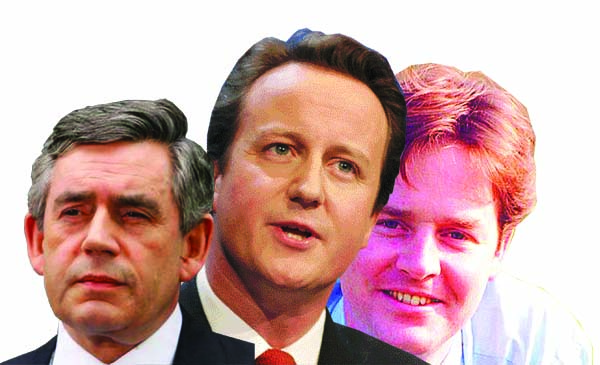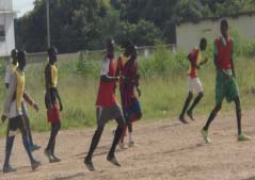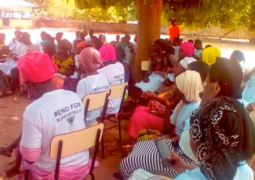
By As widely predicted, Britain woke up Friday morning to news of a hung Parliament, as none of the major parties won a clear majority during Thursday's general election.
Even though the Conservatives won 306 seats (36%), the ruling Labour party was able to come out with 258 seats (29%) and, as expected, the Liberal Democrats won 57 seats (23%), thus resulting in a hung Parliament.
It is interesting to note that Britain's first hung Parliament was in 1974, and there is no doubt that voters are unable to digest what exactly is going to happen next. But experts told the electorate not to 'panic'.
Some of the pundits even went further to say that they voted Liberal for a hung Parliament, so that everyone will be 'fully represented'.
The Tory leader, David Cameron, has announced that he is 'willing to work' with the Liberals, and has requested them to join him form a government.
The two parties, however, represent different ideologies, and voters are skeptical about how they would be able to form a government.
For example, the Liberals are demanding and also committed to a 'federal UK', as well as calling for a 'written constitution'.
Unlike the Conservatives, the Liberals are also committed to an 'elected' upper House of Parliament, and to 'proportional representation'.
Furthermore, the Liberals are demanding to scrap the student tuition fees, and also requesting for an amnesty for illegal migrants who are law-abiding, and have lived in the country for over ten years.
This is completely contrary to the Conservatives, who in their manifesto are demanding a 'cap' on immigration. Such an announcement by the Tories had caused the Liberals to publicly challenge Cameron, on national television, to explain to the nation how his party would implement such 'impossible' proposals, especially with the EU migrants.
More interestingly, the Liberals who are opposed to Trident (Britain's submarines with nuclear weapon), are also pro- European Union, and even asking the UK to join the Euro.
On the contrary, the Tories are in favour of Trident and are 'reluctant', when its comes to the EU. They are instead asking for a referendum, before further committing the country to EU policies.
However, the former Tory leader and Prime Minister, Sir John Major has said, 'a coalition with the Liberal Democrats is a price worth paying... the results are what the electorate determined, and joining with the Liberals is a national interest.'
The leader of the Liberals, Nick Clegg, also said the Conservatives should be the first to talk to, as they gained the majority of seats. As a result, Gordon Brown, who is still presiding over the day-to-day activities of the government, said that he understands Clegg?s 'position' and, therefore, will wait for the two to talk.
However, he added that if such a discussion ends with 'nothing', then he was open to talks with the Liberals as they both have a common agenda.
Unfortunately, for the leader of the United Kingdom Independent Party (UKIP), Nigel Farage, who was involved in a helicopter accident while campaigning few hours before voting started, has been rejected by the electorate. The current House of Commons speaker, John Bercow, retained his seat in Buckingham, thereby beating of a challenge from Farage.
As far as the Greens are concerned, Caroline Lucas, the party leader is celebrating, as she will be the first MP from her party. She won the Brighton Pavillion constituency from the ruling Labour party.
For its part, the far right British National Party (BNP) also suffered a heavy loss. Veteran Labour politician, Margaret Hodge, beat the BNP leader, Nick Griffin, eventhough it was predicted that the far right was gaining ground in the constituency.
Hodge, who won a convincing majority, told the BNP leader to simply 'pack your bags and go'. She said the message was clear: 'Get out and stay out'.
Meanwhile, both the Tories and Labour are wooing the Liberals, who are currently enjoying themselves as the 'king-makers'.
At the door of the Whitehall, this correspondent found dozens of journalists observing, while on-lookers including tourists were eagerly watching from outside the security gates the unprecedented events unfolding.
As the excitement of the campaign suddenly turned to the expectation of the formation a new government, the nation is now keenly waiting for information about who will form the next administration.



